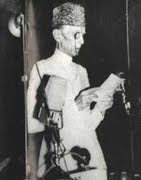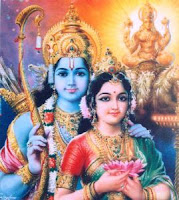Some Questions Regarding the History of Pakistan
Secular people always insist that in the light of 11 August 1947 speech of Jinnah, Pakistan should be a secular country. It is claimed that had he been alive, he would have never allowed the Objectives Resolution to be passed.
Following questions rise in every person, having knowledge of history and religion:
Following questions rise in every person, having knowledge of history and religion:
- It is assumed that had Jinnah been alive, he would have not allowed the constituent assembly to pass Objectives Resolution. The question is that how could Jinnah prevent it. Does they want to prove that Jinnah was a dictator and could dictate constituent assembly and could reject will of the nation?
- Is there any historical evidence to show that Jinnah was a secular person, and wanted secular constitution for Pakistan? Can it be substantiated that Jinnah ever declared that Pakistan will be a secular state, or Islam will not be the highest guideline for Pakistani constitution?
- Can any reasonable person interpret the 11 August speech of Jinnah as a secular framework for the constitution of Pakistan?
- Does the right of the interpretation of that speech lies within the handful of secular, Westernist and communist journalists and politicians, or to the elected representative parliament?
- In his letter Iqbal clearly wrote to Jinnah that I new country should be founded to implement Shariah. From 1940 to 1947 people raised slogans, “Pakistan ka matlab kai? Laa Ilaha illallah”. If for a moment, we agree that in his speech Jinnah meant secularism, then on this U-turn should he be admired or denounced?
- Jinnah refused to see his daughter because she married a non-Muslim guy. So could this Jinnah be a secular?
- Many a times, Jinnah used to refer to the last prophet (PBUH) as “our great law giver, the prophet of Islam”. Isn’t this notion exactly against secularism?
- The flag of Pakistan was approved by the constituent assembly in the life of Jinnah. It consisted of green area representing Muslims and white representing religious minorities. It clearly indicates that Muslims will always be Muslims and non-Muslims will remain non-Muslims before state. Jinnah never opposed this flag. Doesn’t it mean that Jinnah had changed his views that, "Now I think we should keep that in front of us as our ideal and you will find that in course of time Hindus would cease to be Hindus and Muslims would cease to be Muslims, not in the religious sense, because that is the personal faith of each individual, but in the political sense as citizens of the State."
- Why do the champions of democracy forget their own principles on this issue and want to impose the opinion of an individual (if we suppose that it was as per interpreted by the secularists)?
- How should we Muslims be secularists and support secularism, when secularism is in exact contradiction to Quran? Are we advised to abandon our faith to become secularists?


Interesting arguments! Especially the one about flag.
ReplyDeleteI would want to show this post to someone who "thinks" that Quaid made lot of mistakes!!
Interesting...not convincing?
ReplyDeleteAs per my study Jinnah was a perfect politshiyan,just like Laluprasad.He played double game.
ReplyDelete1)As secular.
2)As muslim.